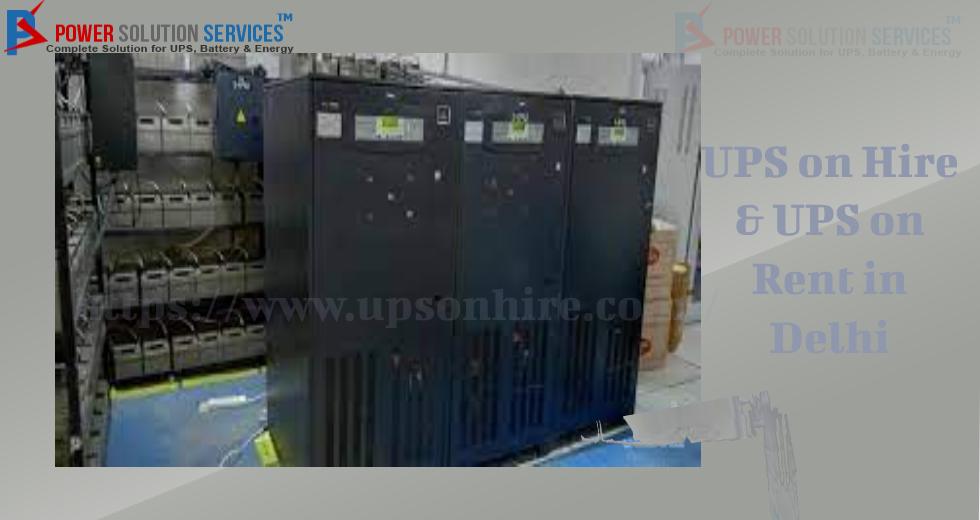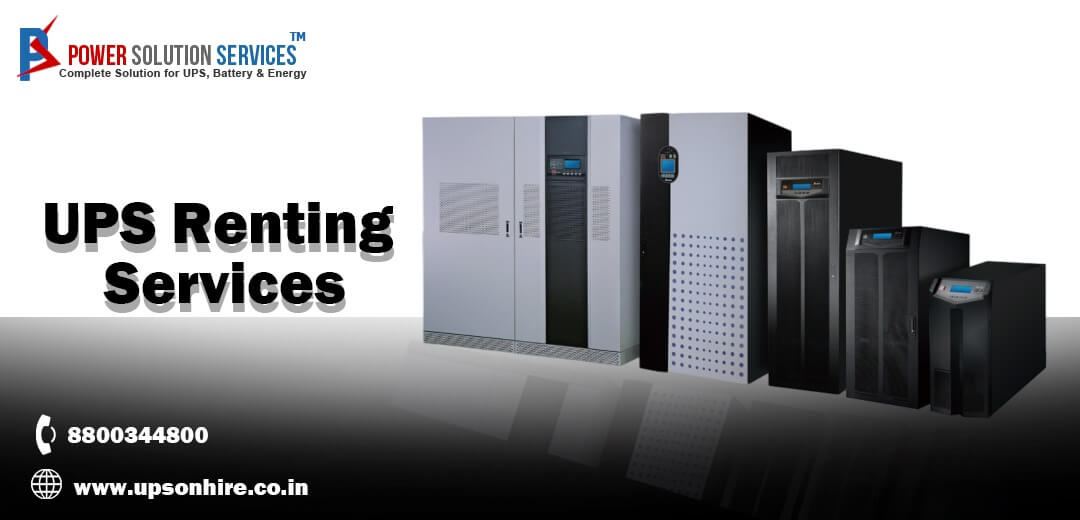About Us
“Power Solution Services” founded by Mr. Sanjeev Kumar Garg in 2001 at Vadodra (Gujarat), then did set up in Noida in 2004, is one of the Top AMC service provider for online UPS of Emerson/TATA Liebert & other branded make UPS Systems.
Learn MoreContact Info
- A-48, BLOCK-A, SEC-53, NOIDA 201301 (U.P.)
- +91-9315572838
-
marketing@powersolutionservices.co.in
service@powersolutionservices.co.in
admin@powersolutionservices.co.in
- by Power Solution Services
- Feb 21, 2025
What is the Difference Between a UPS and a Battery Backup?

You are having an important work call when the lights go off. The situation flusters you if only you don't own a UPS or a battery backup.
A UPS or battery backup system is built to sustain one`s electronic gadgets during outages. However, do they function in the same manner? Let's take it apart.
What is a UPS?
A UPS can be defined as a gadget that provides power to your electronics within no time during a power failure. In comparison to other backup instruments, the UPS ensures that there is no interval in the supply of power and this guarantees the functioning of your devices without interruption.
Once the main power supply drops, a UPS automatically switches to a battery usually an internal battery that lasts within a few minutes to hours depending on the capacity. This feature does indeed make it very relevant and reliable for systems that are critical and require more than just a few minutes of power availability.
Use Case: It is especially useful in instances where a computer, server, and medical devices could lose their data or stop functioning completely due to an unexpected power failure.
What is a Battery Backup?
A battery backup system or equipment creates or stores electricity to offer electricity during blackouts. It doesn't always provide the seamless plug-and-play compatibility offered by a UPS.
Whenever there is a power blackout, a battery backup system starts working however it might take a little while before it starts supplying electricity to the devices. It may not be that useful for devices that rely on a constant steady supply of power.
Use Case: Battery backups are more commonly used for smaller, less critical devices such as routers, alarms, and home appliances where a brief power interruption is not critical.
Read Also:- Why Should You Rent a Battery Instead of Buying One?
Main Distinctions Between a UPS and a Battery Backup
- 1. Instant Power vs. Delay: The most fundamental difference and distinction between them, a UPS gives an instantaneous supply of power, immediately after a power cut. The battery backups might have a slight state lag before it turns on the power up, whereas the UPS comes gasping at the moment the power drops.
- 2. Duration of Power Supply: A UPS is created to allow users to disable the equipment safely by providing power for a couple of minutes to an hour. However, a battery backup is designed often to allow the devices to sustain for a long time.
- 3. Protection and Features: Battery backups are basic power gadgets without extras while AVRs, surge protection, and battery health monitors are additional features that often come with a UPS.
- 4. Applications: Battery backups are best suited for low-priority devices like internet routers and garage doors but UPS would make a far better choice for security systems, servers and computers as they are time-sensitive systems.
When to Choose a UPS and When to Battery Backup
Network power switches come in various types to suit different requirements and setups. Here are the primary types:
Choose a UPS If:
- You need uninterrupted power for critical devices.
- You require instantaneous power transfer.
- Your devices are sensitive to power interruptions (e.g., computers, medical equipment).
Choose a Battery Backup If:
- You only need backup power for non-essential devices.
- You can tolerate a small delay in power restoration.
- You want a cost-effective solution for smaller devices like modems or lights.
Conclusion
Although both of these devices can act as a power backup system, they function differently through different techniques. The decision of which one to use often depends on the device that you want to use and the duration for which you want to use the device.
In the case that you are trying to set up a home office, or you are trying to safeguard crucial business processes, differentiating between a UPS and a battery backup will aid you in selecting the best-suited device for your power requirements. If you want something to use for a very short period then considering taking a UPS system or Batteries for lease might be the best cost-effective option for you, similarly, if you need an affordable power solution, then a used UPS will also be fit for your requirements.
Related Post
Popular Post
 20 Aug 2022
20 Aug 2022
UPS on Hire & UPS on Rent in Delhi, NCR - Powering Your Business with Flexibility and Reliability
In today's fast-paced business environment, uninterrupted power supply is crucial to keep operations...
Read More 20 Aug 2022
20 Aug 2022
Unlocking the Power of UPS Renting Services: The Secret Ingredient in Delhi NCR
In a dynamic market like Delhi NCR, efficient logistics can make or break a business. UPS's renting ...
Read More 20 Aug 2022
20 Aug 2022
How to Use Emerson UPS AMC & Repair Services To Desire
When it comes to ensuring the reliability of your critical power infrastructure, Emerson UPS (Uninte...
Read More


